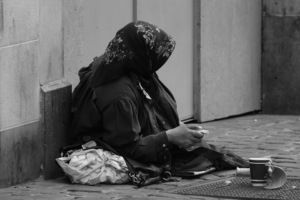News
Huge hike in numbers charged with street begging on Danish streets
This article is more than 8 years old.
Police charges have shot up by 800 percent in just three years

Far more begging is being reported to the police (photo: Pixabay)
New figures from Rigspolitiet, the state police, reveal the number of people charged with begging on the street has shot up significantly in recent years.
Last year, a total of 76 people were charged with street begging – considerably higher than the nine charged in 2013. It is particularly in Copenhagen that numbers have risen.
“It’s a consequence of the efforts starting in 2014 when the City Police decided to launch a targeted effort against the growing number of street beggars,” Kjeld Farcinsen, a section head at City Police, told DR Nyheder.
“The rise is down to more people being warned back then and then subsequently charged because they were caught doing it again. Furthermore, the efforts intensified from 2015-2016.”
READ MORE: Tough talk from Danish government on illegal Roma camps
More reports
The police expect the number of charged street beggars to continue to rise, as it has done every year recently. In 2014, 19 people were charged, and the number then rose to 35 in 2015.
When the police respond to reports of street begging, the police initially give the beggar a warning in the form of a ban – meaning the beggar is banned from the area for five years.
The police also revealed that the number of street beggars being reported to the police has jumped in recent years.
“Since the press has placed more focus on the problems, people have become more aware about what is illegal, so more people are reporting the issue to us – which we then respond to,” said Farcinsen.










































